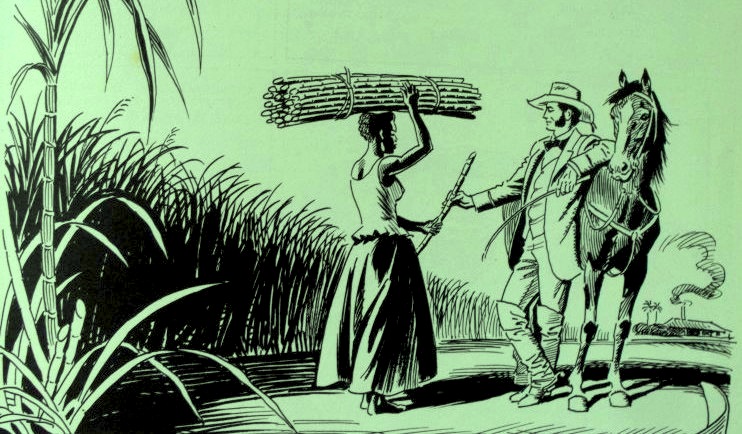Lula da Silva is placed at the disposal of justice. A police apparatus was set up to coerce the former president to testify under the cross-hairs of the mainstream media, Globo, which supported the 1964 Coup and subsequent dictatorship. Pedro Serrano, professor at PUC-SP and constitutional law scholar notes that this action against Lula is already the biggest crime committed against a former president since Joao Goulart was forcibly removed from office. He says that Brasil is now a lawless country where fundamental rights are eased against a particular citizen and where only one political field is investigated.
The operation “Car Wash” (Lava Jato) move to force Lula to testify was leaked to Globo TV network beforehand so their helicopter could hover over the former president’s house before the federal police arrived. During the night, Epoca’s magazine’s editor in chief (which belongs to the Globo Organization) happily tweeted about the actions that would take place the following morning. This was a sign of the media’s power to manipulate public opinion with a noticeable coup-driven agenda. Federal judge Sérgio Moro has become the high-profile face of the campaign against the PT Party, Rousseff and Lula. However, he is no messiah- he is more like Pontius Pilate trying to stop a leader from gaining power. It is a political move to stop the former president Lula from running for the presidency.
There is a great deal of debate in Brasil over the idea that this was an orchestrated move to strengthen the course of a coup against the Brasilian democratic system.
Brasil is experiencing the return of an old ghost which haunts its cultural, social and political life- the conflict between the master’s Casa Grande (colonial mansion) and the slaves Senzala (quarters). Sociologist Gilberto Freyre presented the importance of the relationship between the Casa Grande and the Senzala in Brasilian social-cultural reproduction. His classic, Casa Grande & Senzala emphasises the formation of Brasilian society in the context of miscegenation among white, mainly Portuguese, blacks of various African nations and different indigenous tribes that inhabited Brasil. The architecture of the Casa Grande expresses Brasil’s form of social organisation and political system. That is, politics was traditionally only a domain for the Casa Grande. Brasilian’s corporate media, especially Globo, has supported that cultural perspective for generations. Globo media is ethically comparable to the Daily Mail in the UK. The Brasilian political crisis is fuelled by predominantly white upper-middle class attitudes towards the predominantly black working-class and its access to redistributive social welfare programs
It is this powerful press which chooses the heroes and the victims, designating public enemies from its class opponents. It creates the defendants and supports the judges who say that penalties should be applied regardless of the legal apparatus because in their application they can always twist, distort and remake the law.
Most indicators show that 2008-2014 marked the best period in Brasilian history. For example, inflation ranged between 4.31% and 6.50% considered optimum for an economy. The unemployment rate in 2014 was 4.8%, the lowest ever recorded. The PT party enacted laws requiring that 50% of all students enrolled at public universities are from low-income backgrounds and primarily Afro-Brasilian, in accordance with their representation level in the general population. Before PT took office, this percentage hovered around 5%. Brasil’s foreign reserves are still 10 times higher than they were before PT took office. However, the mainstream media is not designed to reveal, but to cover up or even to fabricate news.
Brasil experienced the first impact of the global economic crisis in 2009, when the Brasilian GDP suffered a decline of 2.5% in the third quarter of that year. However, it is a bizarre argument by some mainstream media that discontextualizes Brasil from the global economic scenario.
Dilma’s administration rose the minimum wage to R$880 for 2016. This represents a real increase, above inflation, of 77% since 2003 and will inject R$ 57 billion in the economy. This income increase promotes a better redistribution of wealth, reduces poverty and provides a return of R$ 30 billion in revenue with taxes.
The reactionary singsong of the media is one of its instruments of manipulation. It is most effective when it comes to the ideological struggle. A democracy in Brasil needs to be controlled and validated by Globo or it is not a democracy. Globo has a long and dirty history when it come to defending its political interests against regimes that enacted strong minimum wage policies such as Vargas and Jango and continued its tradition against Lula and Dilma.
Ranciere (2001) notes that, “democracy is a term invented by its opponents, by all those who were ‘qualified’ to govern because of seniority, birth, wealth, virtue, and knowledge. Using it as a term of derision, they articulated an unprecedented reversal of the order of things: the ‘power of the demos’ means that those who rule are those who have nothing specific in common aside from having no qualification for governing. Before designating the name of a community, Demos was the name of one part of the community: namely, the poor. The ‘poor,’ however, does not designate an economically disadvantaged part of the population; it simply designates the category of people who do not count, those who have no qualifications to partake in arche, no qualification for being taken into account (p.123)”
Hence the elite need to demonise the popular organizations on the left and their icons, demoralising them as much as possible.
The political strategy to push the middle class to defend the interests of the elites is always the same: throw leftist leaders into the mass grave of corruption where capitalism feasts.
Globo is manufacturing consent to increase bias and destabilise a country that has made significant gains against social inequality. But the key point for now is that the right to govern is about to be taken away from the descendants of the Senzala.
[qpp]

